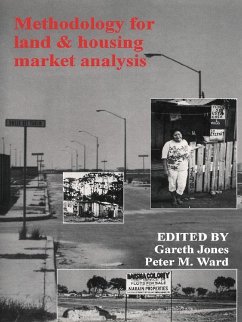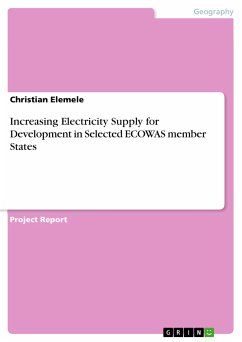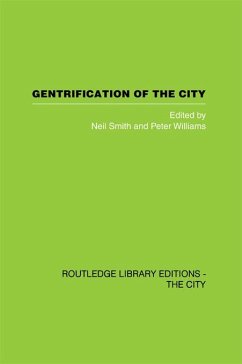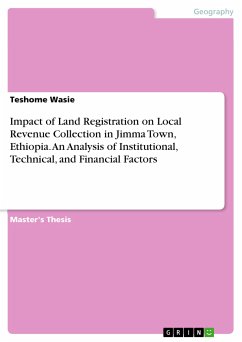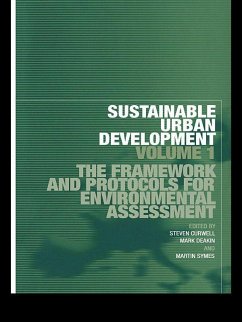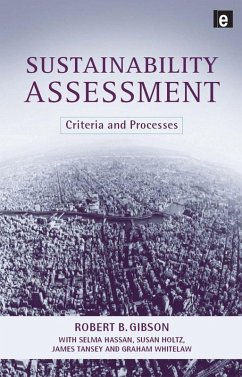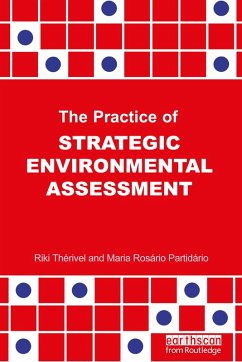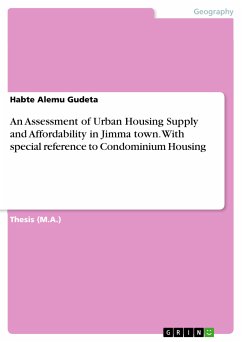
An Assessment of Urban Housing Supply and Affordability in Jimma town. With special reference to Condominium Housing (eBook, PDF)
Versandkostenfrei!
Sofort per Download lieferbar
Statt: 47,95 €**
36,99 €
inkl. MwSt. und vom Verlag festgesetzt.
**Preis der gedruckten Ausgabe (Broschiertes Buch)
Alle Infos zum eBook verschenkenWeitere Ausgaben:

PAYBACK Punkte
0 °P sammeln!
**Preis der gedruckten Ausgabe (Broschiertes Buch)
Thesis (M.A.) from the year 2010 in the subject Urban and Regional Planning, grade: A, Addis Ababa University (Institute of Regional and Local Development Studies), language: English, abstract: This study has been conducted in Jimma town of ONRS with the general objective of assessing urban housing supply and its affordability with special reference to condominium housing. It also attempted to identify the factors which affected affordably condominium housing supply and local residents to afford for condominium housing in the town as well as to assess whether the condominium housing supply can...
Thesis (M.A.) from the year 2010 in the subject Urban and Regional Planning, grade: A, Addis Ababa University (Institute of Regional and Local Development Studies), language: English, abstract: This study has been conducted in Jimma town of ONRS with the general objective of assessing urban housing supply and its affordability with special reference to condominium housing. It also attempted to identify the factors which affected affordably condominium housing supply and local residents to afford for condominium housing in the town as well as to assess whether the condominium housing supply can solve the problems of urban housing for the urban poor. Data for this research were collected mainly through a survey of 180 households (120 households from non condominium residents and 60 households from condominium housing resident respondents) and analyzed using descriptive statistics and SPSS 15. The study found that, supplying of standard low cost housing for low and middle income groups are affected by high cost of local constructional materials, low level of income the majority of the residents, high housing costs and low capacity of the majority of the residents to afford for condominium housing in the study area. Beneficiaries of condominium housing were on average, those who were classified as high and middle income categories of the residents. The study also showed that, condominium housing beneficiaries are better off in terms of both mean monthly income and saving than the non condominium housing residents. Household with higher income categories are also those with higher monthly saving than the lower income category. As a result there was strong correlation between household income and saving with r =0.621(**). This showed that, household of higher income can save higher amount of their income that enables them to afford standard condominium housing.
Dieser Download kann aus rechtlichen Gründen nur mit Rechnungsadresse in A, B, BG, CY, CZ, D, DK, EW, E, FIN, F, GR, HR, H, IRL, I, LT, L, LR, M, NL, PL, P, R, S, SLO, SK ausgeliefert werden.




